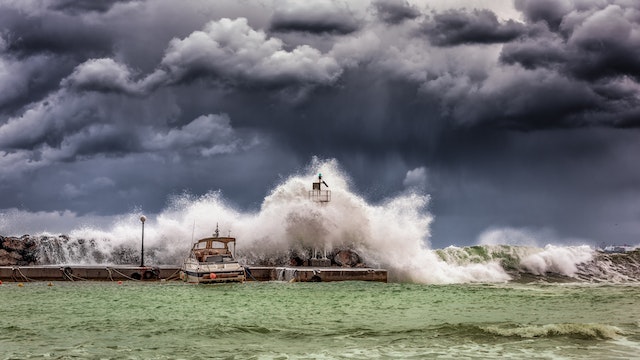According to a comprehensive federal evaluation of the damage caused by storm-induced floods, Florida emerged as one of the most precarious regions along the southern coast of the U.S.
Floods are natural disasters that can cause catastrophic damage to homes and businesses. The National Flood Insurance Program (NFIP) is a federal program that was created to provide flood insurance to those who live in high-risk flood zones. However, in recent years, private flood insurance options have gained huge popularity.
In this blog, we will compare private flood insurance to the NFIP, highlighting their differences and similarities.
What is NFIP?
The NFIP was created by the U.S. Congress in 1968 to provide flood insurance to homeowners, renters, and business owners. The NFIP program is administered by the Federal Emergency Management Agency (FEMA). It is designed to cover damages caused by floods, which are not covered by most homeowners’ insurance policies.
The NFIP offers both building and contents coverage. Building coverage covers the structure of the building, including the foundation, walls, floors, and roof. Contents coverage covers personal property such as furniture, clothing, and electronics.
What is Private Flood Insurance?
Private flood insurance policies are not backed by the federal government, unlike NFIP policies. They are designed by private insurance carriers. The insurance company is entirely responsible for paying out claims and managing risks. Private flood insurance can cover a lot more than the NFIP.
They can be purchased by individuals and businesses in all areas, including high-risk flood zones.
Differences between Private Flood Insurance and NFIP:
Coverage Options:
A typical private flood insurance policy offers more extensive coverage options than the NFIP. It can cover damages caused by groundwater, sewer backup, and other types of water damage that are not covered by NFIP policies.
Private flood insurance policies can also offer higher coverage limits than the NFIP. Thus, providing better protection for homes and businesses. NFIP only covers $250,000 on homesand $100,000 on the inside contents. For Commercial properties it is capped at $500,000 for the building and $250,000 on inside content.
Pricing:
Private flood insurance policies can cover much more than NFIP policies,the only limitation is someone’s finances. Moreover, the cost of private flood insurance policies depends on several factors such as the location of the property, the type of coverage, and the insurance company providing the policy.
Advantages of Private Flood Insurance:
Broader Coverage Options:
Since private flood insurance operates independently from government flood coverage, insurers have the freedom to provide coverage options that may not be accessible through the NFIP.
This includes coverage for expenses related to temporary living arrangements, such as hotel accommodations and dining expenses. It also provides coverage for personal possessions stored in your basement.
Moreover, private flood insurance frequently offers elevated protection limits for your home and belongings. It may also include add-ons that can minimize your financial responsibility in the event of a flood-related loss.
Flexibility:
Private insurance companies can customize policies to meet the specific needs of homeowners and businesses. This flexibility allows residents to get the coverage they need without paying for unnecessary benefits.
Lesser Waiting Period:
Private flood insurance comes with the advantage of a reduced waiting period, which can be up to 25 days. This can be the difference between coverage when it matters and not It means that the interval between the approval of your coverage and the commencement of your policy will be comparatively shorter.
This feature makes it a sought-after choice among those Florida residents who require immediate coverage during the hurricane season.
Competitive Pricing:
Private flood insurance companies can offer lower premiums because they have more flexibility in underwriting and pricing policies. Since they take into account various factors, they can create policies that are tailored to each property. This results in a more accurate and cost-effective pricing.
Overall, private flood insurance offers property owners a viable alternative to the NFIP.
At Rosier Insurance, we offer reliable flood insurance in Bonita Springs, FL. It provides comprehensive coverage against flood damage, including damage caused by storm surges, flash floods, and other rising water-related incidents.
Moreover, your policy will be backed by a team of agents who are available to guide you through the claims process seamlessly.
Sign up for our flood insurance in Bonita Springs today!



